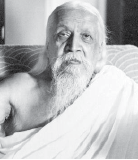- Home
- Archive -Mar 2021
- Guruspeak

Guruspeak
- In :
- March 2021 LP
What is Indian Culture?
Sri Aurobindo was unique among spiritual masters in being a perfect synthesis of the East and the West. That gave his teachings a refreshing and contemporary touch, free from any dogma and prejudice. While he was rooted in ancient Indian wisdom, his teachings have a global scope in today’s world. This article by Ramesh Bijlani is part of a series that celebrates the 150th birth anniversary of Sri Aurobindo, which falls in 2022.
A few years ago, I was waiting for my turn at the barber’s. While waiting, I picked up a Hindi newspaper. One of the headlines on the front page ran somewhat like this: ‘MBA girl, can’t wear jeans.’ Finding the headline interesting, I read the story, which said that a married girl living not far from Delhi and holding an MBA degree was not allowed by her in-laws to wear jeans. The girl had complained that she was expected to keep her head covered with a dupatta (a long scarf) all the time, and if the dupatta slipped even while working in the kitchen, she got a scolding. All these rules were imposed on her in the name of Indian culture. This is unlikely to be an isolated story. Is that what Indian culture really is? Or, for that matter, does a great culture really concern itself with such minor things?
The culture of people is the product of their long-shared past, because of which they come to have a defining mental ideal. This ideal finds an expression in their language, art and literature, music and dance, and even their politics. The defining mental ideal of the Indian culture is based on a shared past of more than 5,000 years. According to Sri Aurobindo, this defining mental ideal is spirituality. That is why spirituality permeates Indian languages and creative endeavours, and is also reflected in the way Indians, in general, live, eat, behave, and respond to circumstances.
Sri Aurobindo wrote a series of articles titled ‘In Defence of the Indian Culture’ in the monthly journal, Arya, during the period December 1918 to January 1921. This triggered a scathing criticism by Mr William Archer, a British drama critic, in which he had the temerity to lump all the greatest achievements of India “in one wholesale condemnation as a repulsive mass of unspeakable barbarism.” While conceding that in the early twentieth century, India was passing through one of its most decadent phases, Sri Aurobindo argued that a whole culture cannot be judged on the basis of the outer appearances during such a phase. What sets India apart from the rest of the world is her idea of human life and its aim. The Indian culture has looked upon life as an opportunity for a better realisation of the Spirit of the Divine in man. Can there be an aim higher than that? Further, this aim was addressed by putting both the outer and the inner life to the noblest use, thereby filling life with love, peace and joy. Since happiness is something that everybody everywhere in the world wants, and all formulae other than the Indian view of life have failed to achieve true and lasting happiness, the world has repeatedly turned to India for the wisdom that has the key to the solution of all the problems of human existence. It is a pity that even today, we consider petty things such as the slipping of the dupatta off the daughter-in-law’s head as a violation of the Indian culture. For Indians, a better knowledge of the Indian culture is more than a patriotic duty. As for everyone else in the world, it is their only hope of happiness in a life that, on the surface, is difficult, erratic, and unpredictable.
Ramesh Bijlani, once a professor at AIIMS, New Delhi, is now a spiritual seeker at Sri Aurobindo Ashram – Delhi Branch.
To read more such articles on personal growth, inspirations and positivity, subscribe to our digital magazine at subscribe here
Life Positive follows a stringent review publishing mechanism. Every review received undergoes -
- 1. A mobile number and email ID verification check
- 2. Analysis by our seeker happiness team to double check for authenticity
- 3. Cross-checking, if required, by speaking to the seeker posting the review
Only after we're satisfied about the authenticity of a review is it allowed to go live on our website
Our award winning customer care team is available from 9 a.m to 9 p.m everyday
The Life Positive seal of trust implies:-
-
Standards guarantee:
All our healers and therapists undergo training and/or certification from authorized bodies before becoming professionals. They have a minimum professional experience of one year
-
Genuineness guarantee:
All our healers and therapists are genuinely passionate about doing service. They do their very best to help seekers (patients) live better lives.
-
Payment security:
All payments made to our healers are secure up to the point wherein if any session is paid for, it will be honoured dutifully and delivered promptly
-
Anonymity guarantee:
Every seekers (patients) details will always remain 100% confidential and will never be disclosed
